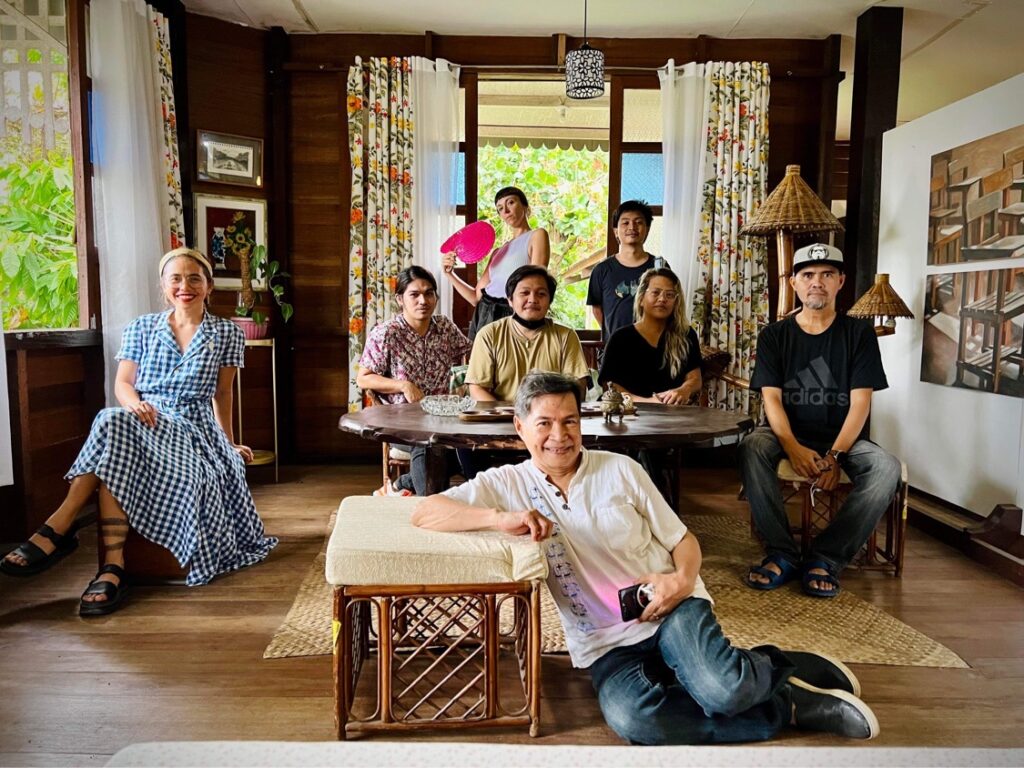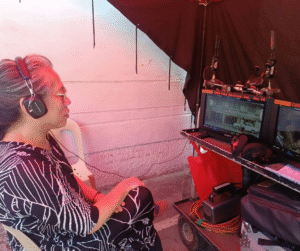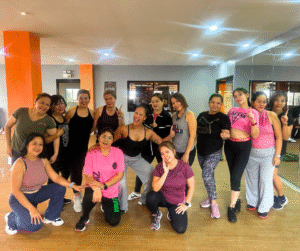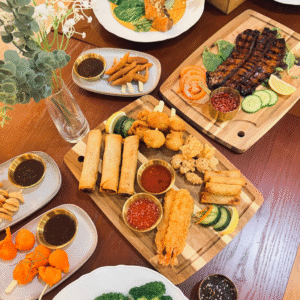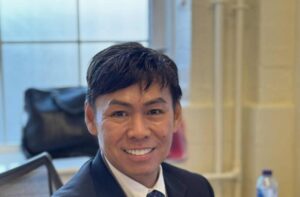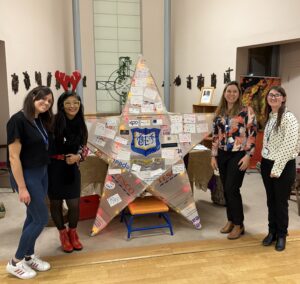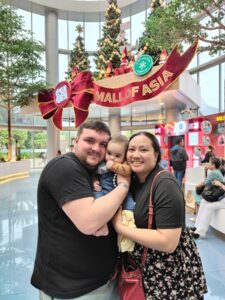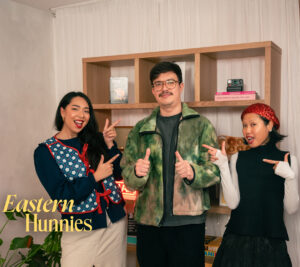By Giulia Casalini
In October 2022, I had the opportunity to travel to the Philippines via a work placement scheme offered by Technē, my PhD sponsor. I am an artist-curator-writer-researcher interested in creating connections and coalitions with queer/trans/feminist artists across the globe. For this reason, I joined Filipina artist-curator Rhine Bernardino in their trailblazing project ACCESS: an independent, non-hierarchical digital platform they founded as part of ongoing research around art practices from rural areas.
ACCESS (website to be launched later this year) is an online platform that maps and connects non-institutional spaces, projects, collectives and other grassroots initiatives that are marginalised or unacknowledged within a capitalist art system. In compiling the data for the website, Rhine and other project collaborators (like myself on this occasion) also create in-person opportunities, such as workshops, focus groups or communal meals, to meet the local creatives and exchange projects or ideas around the art scene they belong to.
Artists and activism
While in the Philippines, I encountered a rich artistic milieu, with numerous independent initiatives, especially gravitating around art universities. I have met artists living in Manila, Batangas and La Union in Luzon. Furthermore, with ACCESS, we held meetings in Davao, Tagbilaran and Dumaguete respectively, on the islands of Mindanao and Visayas. Despite the commitment of the artists I encountered, our conversations kept resurfacing the problems of a structurally unjust, extractive and elitist system.
We could visibly perceive a great deal of gender and sexual variance and acceptance in Filipino society, which made us feel at ease: young same-sex couples were holding hands in the streets, trans women were working at their family’s businesses, and queer couples were spending holidays together with their families.
For example, the country’s peripheral areas are suffering in terms of funding, whilst most resources go to the capital Manila. A “padrino” system favours those who have familial or friendship ties with those in power. In many cases, the money used to run art galleries or studios might come from families’ exploitative investments in the Philippine land and its agricultural workers. Also, the government often accuses organisations dedicated to social justice projects of being communist or leftist terrorist groups, thus “red-tagging” them and their members.
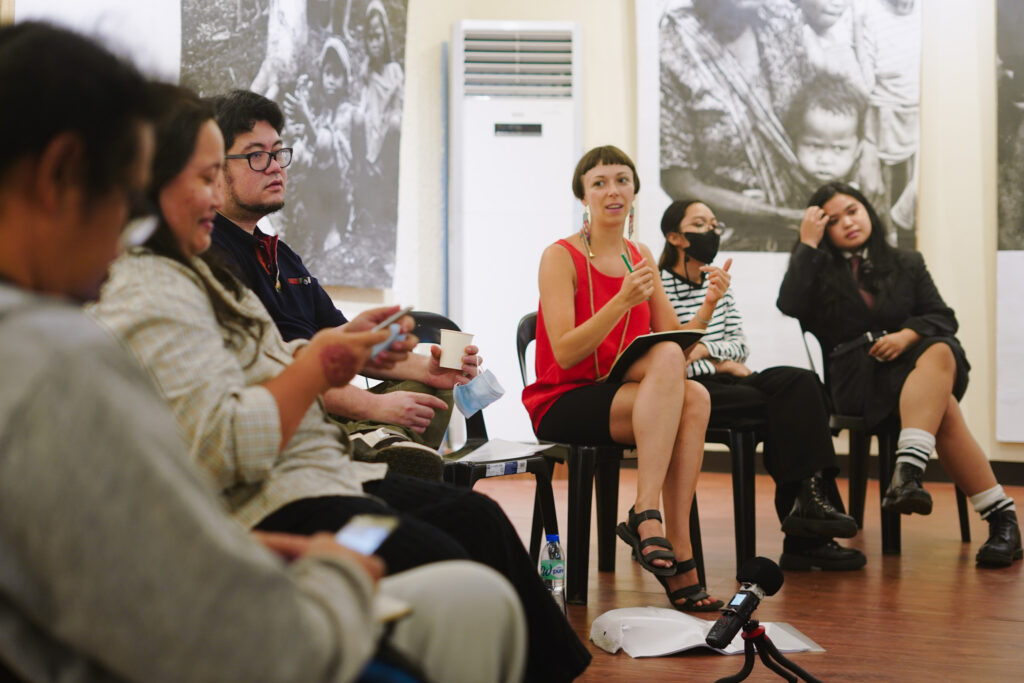
Almost everyone I encountered who was part of an organisation fighting for social or environmental justice had already been red-tagged – such as the Filipino cultural workers’ organisation Concerned Artists of the Philippines, which Serena Magiliw (a brilliant transgender actress and activist) introduced me to. Besides being trolled and stalked by covered agents, being red-tagged also means that the organisations cannot receive funding from the Philippines government and must rely only on external aid or the community’s own resources.
I wonder if this comforting acceptance and general support from Filipino families and communities has allowed the LGBTQI+ movement (especially in the provinces) to be closer to land rights and workers’ struggles, rather than focusing exclusively on the fight for sexual/gender identity and recognition.
Interestingly enough, I would say that all the activists I have met in the Philippines were also artists, and all the artists were also LGBTQI+, or shared similar queer or trans/feminist visions. Almost all of them (even those not identifying as LGBTQI+) showed flexibility in using whatever pronoun, or resisted using pronouns altogether – preferring no pronoun at all or the gender-neutral ‘sha’ (siyá in Tagalog).
An accepting society for LGBTQI+
Being a “white” lesbian couple from the Mediterranean region (comprised of a trans-feminine and a cis-gender person), my partner and I would only encounter difficulties due to our racial and cultural difference rather than our gender or sexuality. As LGBTQI+ people, we never felt unsafe because everywhere – from the rural areas to the major cities – we could visibly perceive a great deal of gender and sexual variance and acceptance in Filipino society, which made us feel at ease: young same-sex couples were holding hands in the streets, trans women were working at their family’s businesses, and queer couples were spending holidays together with their families.
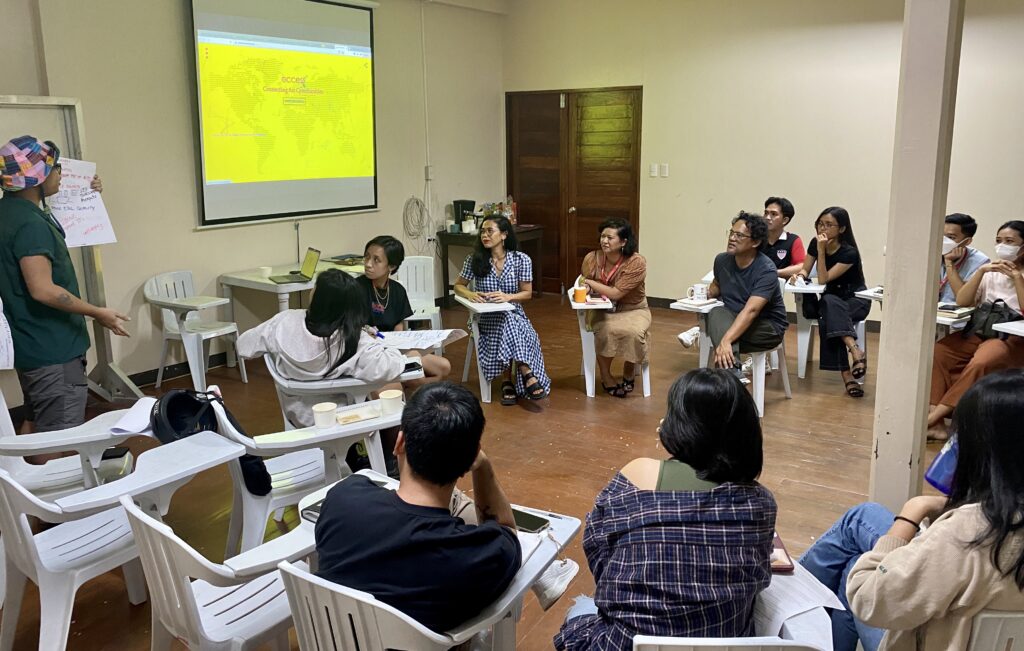
In the UK and Europe, from my personal experience and those of the communities I am close to, I have rarely seen such a degree of acceptance, especially from our families: the “coming out of the closet” narrative is almost always a story of pain and struggle rather than one of welcoming acceptance. Paradoxically, in the Philippines, despite transgender people are still lacking specialised healthcare and fundamental rights (such as the change of gender on ID cards), the perception I had of its society is more welcoming towards us than in the UK or other European states.
Gender and environmental issues are interconnected
Therefore, I wonder if this comforting acceptance and general support from Filipino families and communities has allowed the LGBTQI+ movement (especially in the provinces) to be closer to land rights and workers’ struggles, rather than focusing exclusively on the fight for sexual/gender identity and recognition. In Dumaguete, for instance, I encountered Andy – an inspiring non-binary/genderfluid person, writer and cultural worker who is part of SILAAB Negros, an organisation of artists fighting for land reform. When I asked them why they would advocate for peasants rather than for trans people, they replied that there is no need to separate the struggles because they are all deeply connected and that, with their presence, they can bring a gender and sexuality discourse within the peasant communities.
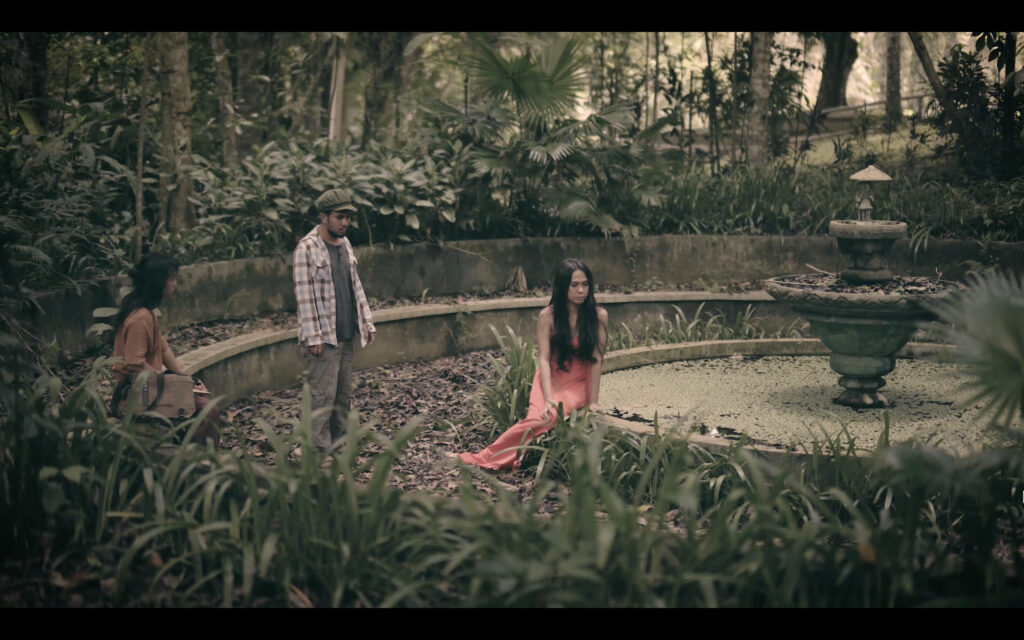
In Davao, I had a memorable encounter with Ram Botero, a trans woman and film director who has worked for years with an NGO that helps mining communities to extract gold without using mercury and being tied to exploitative feudal lords. In her film Pamalugu (In Limbo), from 2019, she makes clear how socialism needs to account for and fight for LGBTQI+ rights, as there is not a hierarchy of priorities but rather interconnecting efforts and alliances. These are just two of the many queer, trans/feminist artist-activists I have encountered during my travels.
Environmental issues and the protection of the Philippines’ land and sea is an everyday struggle – especially for indigenous people, peasant populations and their many advocates. In my collaboration with Rhine, and ACCESS’ focus on the country’s provinces, I have come to understand why artists would be so concerned with the damage of extractive, violent, capitalist-oriented politics endorsed by the government and its international corporate allies and local warlords. Reflecting on the rural and peripheral Philippines as a place for queer, trans/feminist resistance and allyship, I believe that, from there, the arts – especially if not institutionalised – can move beyond the specialised elitist cliques to cross our differences and formulate new ways of living in communion with the land, the sea, and its many human and non-human inhabitants.
Top photo: Giulia Casalini (standing left) and Rhine Bernardino (left) with Filipino artists at Balay Kabilin in Tagbilaran, Bohol. Photo by Rhine Bernardino. Profile photo of Giulia taken at pIAR [perfocraZe international artist residency] in Kumasi, Ghana. Profile photo by Niya B.
About the author
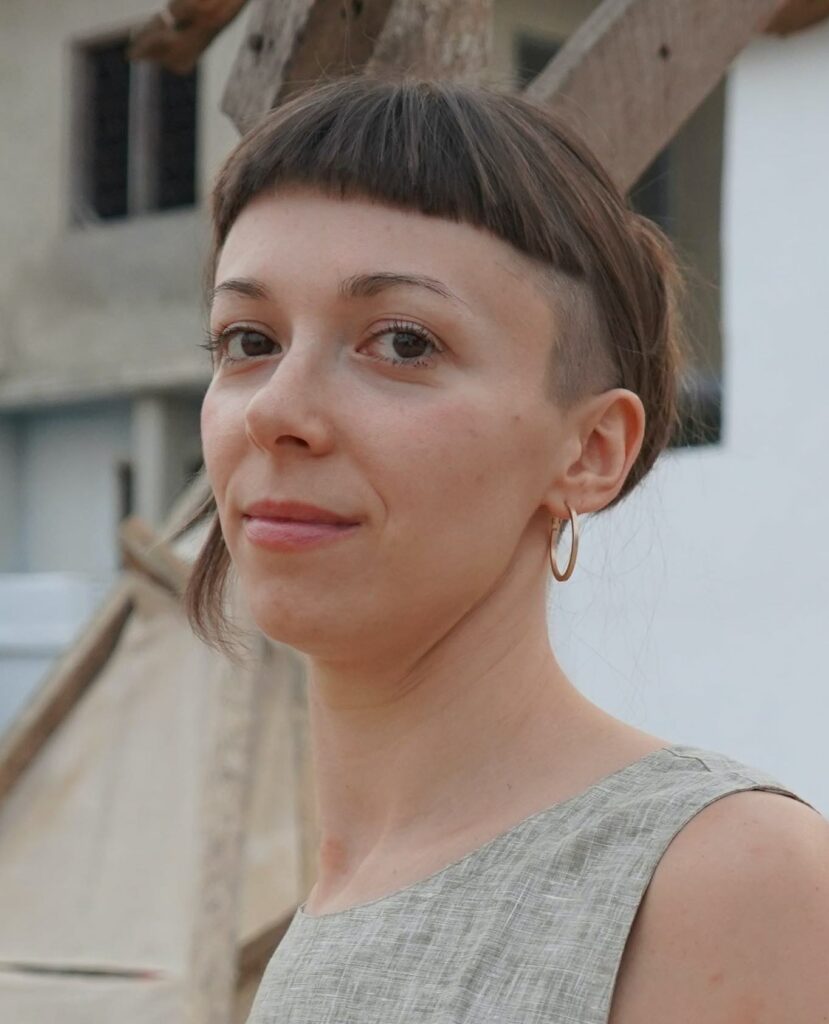
Giulia Casalini´s practice spans across curating, performance, writing and research. Her (eco)transfeminist and queer activism has the scope of building and bridging communities across the globe through the arts and (nature)cultures. Giulia has been the co-founder of the non-profit arts organisation Arts Feminism Queer (aka CUNTemporary, 2012-2020), based in London. She now sits on the advisory board of Mimosa House gallery and she is a Technē-funded PhD candidate at the University of Roehampton, researching queer-feminist performance art from transnational and anti-colonial perspectives.

